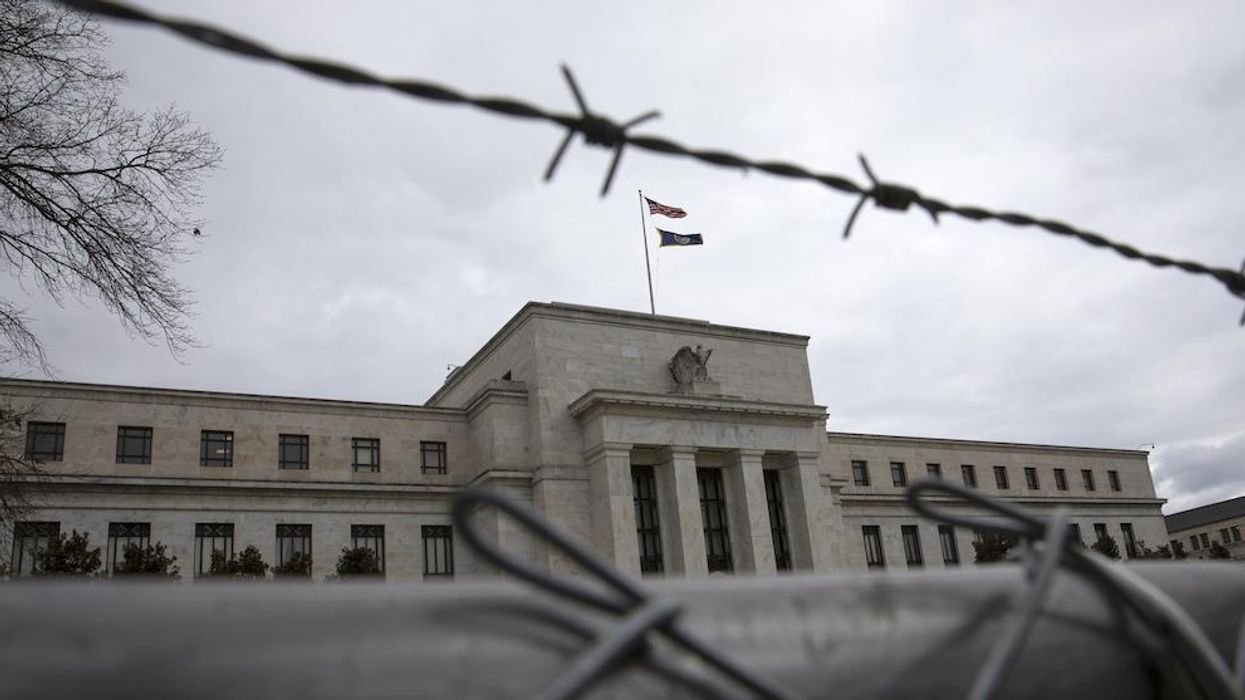
Tom Brenner/Bloomberg via Getty Images

The Fed's monetary policy missed the mark and officials missed the warning signs, so why should they be trusted now?
Before Russia’s invasion of Ukraine, inflation was already being measured at the highest levels in four decades, an outgrowth of overzealous and incompetent monetary and fiscal policy, as well as other nonsensical government policy decisions. The Russian invasion has exacerbated an already bad situation, with the CPI (Consumer Price Index) measure of inflation (one that arguably understates considerably the level of cost increases borne by families) coming in at 8.5% for March.
The Federal Reserve — the same group that didn’t see inflation coming, told us it was transitory, didn’t anticipate the disruptions in the labor market and supply chain, and was enacting accommodative policy by buying securities up until last month — now believes that it can save the economy with monetary policy tools.
As foolish as it is to think that those who created the problems and then didn’t see the outcomes on the horizon will suddenly be economic saviors, it is more foolish to think that their tools could possibly fix what is broken.
Tools that the Federal Reserve uses to enact its monetary policy include changing the target Fed funds rate and buying or selling securities to expand or contract its balance sheet. Lowering the target Fed funds rate and buying securities are expansionary policies meant to lower interest rates, increasing demand for credit and ultimately “juicing” the economy. Increasing the target Fed funds rate and selling securities are contractionary policies meant to slow down the economy.
With inflation continuing to rise, the Federal Reserve has begun to tighten its policy, enacting its first rate hike and signaling it will be contracting its balance sheet, with many current and former Fed members telegraphing the need to do more.
Sure, an increasing interest rate environment can quell some demand-related components of the economy, but how does it fix the supply imbalances that were made worse by reckless policy? The last set of data showed that there are around 1.8 jobs available for every job seeker, keeping wage pressure high. How does monetary policy fix that at all, let alone without tanking the economy? Perhaps it creates such a high cost of living and dents 401ks and pensions in a manner that forces people back into the workforce? Or, it puts even more small businesses out of business, taking away some available jobs? None of those sound like palatable outcomes.
On the housing front, increasing mortgage rates will make housing even more unaffordable than it already was for first-time homebuyers. But with housing undersupplied in the realm of 4 million to 5-plus million homes, and with corporate buyers flush with capital buying housing with all-cash offers, will that really cool off housing enough without creating a slew of other issues on the housing front?
And the underinvestment in energy and health care infrastructure that will continue to show a supply-side imbalance well into this decade isn’t going to be solved long-term with monetary policy.
How does this abrupt policy not tank the economy or the market? In a recent opinion piece in Bloomberg, former FOMC vice chair and president of the Federal Reserve Bank of New York Bill Dudley said, “It’s hard to know how much the U.S. Federal Reserve will need to do to get inflation under control. But one thing is certain: To be effective, it’ll have to inflict more losses on stock and bond investors than it has so far.” His sentiment, along with comments made by current Fed members, doesn’t generate a lot of confidence in the Fed or warm and fuzzy feelings about the market and the economy.
It's unlikely that the Fed, which created this problem, is now going to solve it elegantly. Be prepared to weather the storm, whether that be stagflation (a stagnating economy with high inflation), a recession, or stagflation that goes into the recession.
The Fed and the government have caused this predicament that we are all paying for. We need to stop allowing these damaging policies to continue, because if and when we recover, they won’t have learned a thing.
Carol Roth
Contributor